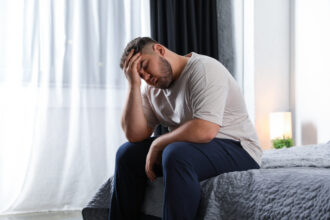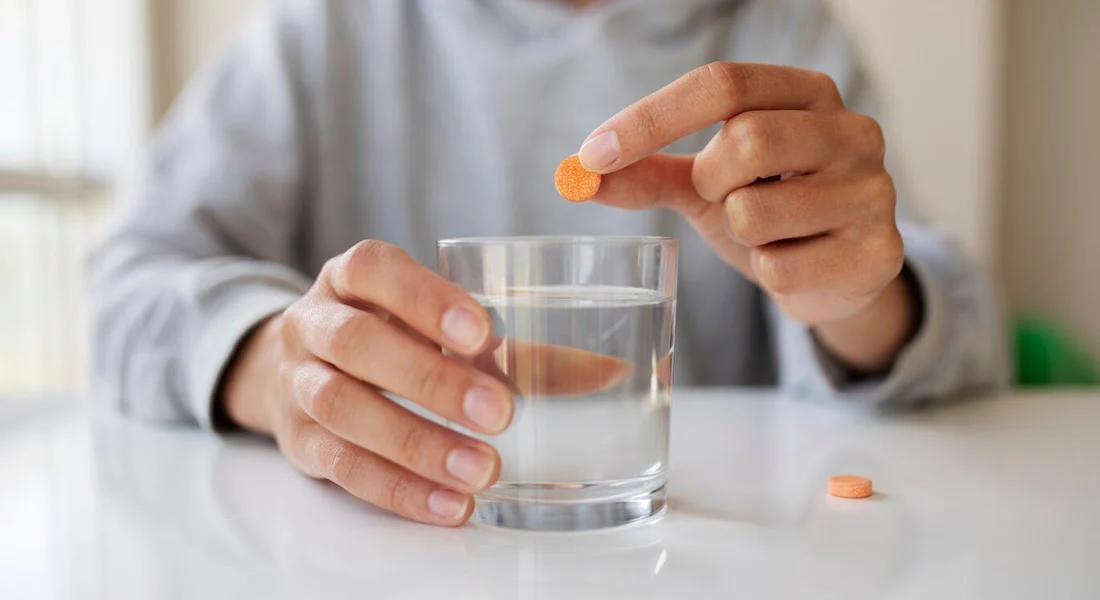Persistent bloating is more than just an occasional digestive discomfort. For many people—especially women between ages 20 and 50—it becomes a daily struggle that affects confidence, comfort, and overall health. If you’ve ever wondered why your stomach feels heavy and bloated or why bloating doesn’t go away even with home remedies, the issue may be caused by lesser-known factors that often go undiagnosed.
This guide explains the hidden reasons behind chronic bloating and provides practical, science-backed ways to relieve it naturally. Understanding these triggers is the first step toward finding long-term relief and improving digestive health.
Understanding persistent bloating and why it happens
Bloating occurs when the digestive system fills with excess air, fluid, or gas. While occasional bloating is normal, persistent bloating that lasts for days or keeps returning may signal an underlying issue.
People with digestive problems, beginners learning about gut health, general health readers, and women with hormonal fluctuations often experience constant discomfort. Unlike mild gas, persistent bloating can cause symptoms like abdominal tightness, heaviness, or pressure, even after eating very little.
Digestive organs such as the stomach, small intestine, and colon all play a role in processing food. When any part of the system slows down or becomes irritated, bloating can become a frequent problem.
Hidden digestive triggers you may not know about
Many people assume bloating is caused only by overeating or gas-producing foods, but several hidden triggers can contribute to constant, severe bloating.
Food intolerances that often go unnoticed
Food intolerances can cause stomach bloating after eating very little. Three common but often overlooked intolerances include:
- Lactose intolerance
- Fructose malabsorption
- Gluten sensitivity or non-celiac gluten intolerance
These conditions can cause abdominal swelling, upper abdominal bloating, excessive burping, and discomfort shortly after meals. Because symptoms often overlap with common digestive issues, many people don’t realize a specific food may be the cause.
The best way to identify intolerances is through an elimination diet, food journaling, or medical testing. Recognizing your personal triggers can dramatically reduce bloating episodes.
Slow gut motility and stomach emptying issues
If you frequently feel like your stomach feels heavy and bloated, slow digestion may be the reason. Gut motility refers to how quickly food moves through the digestive tract. When this process becomes sluggish, food stays in the stomach longer than it should.
Mild motility issues may cause:
- Persistent fullness
- Pressure in the upper abdomen
- Bloating after eating very little
In more severe cases, a condition called gastroparesis may delay stomach emptying. Even mild slowdowns in digestion can lead to chronic bloating if not managed properly.
Hormonal fluctuations in women
Women often experience hormone-related bloating due to shifts in estrogen and progesterone levels. These hormones can affect digestion, water retention, and bowel movements.
You may feel bloated like pregnant during:
- PMS
- Ovulation
- Early pregnancy
- Perimenopause
Hormonal changes can also slow digestion, causing the belly to feel swollen and tight. Understanding the hormonal cycle and making dietary adjustments can help reduce bloating. Female bloated stomach remedies such as magnesium supplementation, reducing salt intake, and gentle exercise may help.
Chronic stress and gut–brain axis imbalance
Stress is one of the most underestimated causes of persistent bloating. When you’re stressed, digestion slows down because the body shifts into “fight or flight” mode.
Stress-related bloating may also cause:
- Upper stomach pressure
- Excessive gas
- Irregular bowel habits
- Headaches
Many people wonder, can bloating cause headaches? Yes—constant bloating can trigger headaches due to intestinal pressure, dehydration, and muscle tension. Reducing stress through breathing exercises, yoga, or meditation can help improve digestion.
For more insights into health and wellbeing, you can also explore related topics
Gut microbiome imbalance (SIBO, dysbiosis)
The gut microbiome contains trillions of bacteria that help digest food. When harmful bacteria outnumber beneficial ones, bloating can become frequent or severe.
Two common issues include:
- SIBO (Small Intestinal Bacterial Overgrowth)
- Dysbiosis (imbalance of gut flora)
These conditions can make bloating seem constant and severe. If your bloating doesn’t go away no matter what you try, a gut imbalance may be the underlying cause. Breath tests or stool tests can help diagnose these conditions.
Non-digestive but common bloating causes
Some bloating triggers aren’t related to food at all.
Postural habits and diaphragmatic dysfunction
Poor posture—especially sitting hunched over—can compress digestive organs and restrict airflow. This can cause upper stomach bloating and discomfort.
Correcting posture with ergonomic chairs or simple exercises can help reduce pressure on the abdomen.
Medications that slow digestion
Certain medications can interfere with digestion and cause bloating, including:
- Antidepressants
- Painkillers
- Antacids
- Iron supplements
These medications may slow motility or increase gas production. If you suspect medication-related bloating, consult a healthcare professional for alternatives.
What does it mean when bloating doesn’t go away?
When bloating doesn’t go away for weeks or keeps returning, it may indicate:
- Food intolerance
- Gut imbalance
- Hormonal issues
- Chronic stress
- Digestive disorders
If bloating is persistent, severe, or accompanied by red flags such as bleeding, intense pain, or rapid weight loss, a medical evaluation is necessary.
How to relieve persistent bloating naturally
Finding relief is possible by making mindful dietary and lifestyle changes.
Diet strategies that reduce unusual bloating
To reduce bloating naturally:
- Balance fiber intake
- Increase water consumption
- Eat slowly to avoid swallowing air
- Avoid known trigger foods
- Add probiotics through yogurt or fermented foods
These habits support healthy digestion and reduce pressure in the abdomen.
Quick relief methods
If you want to know what relieves bloating fast, try:
- Peppermint tea
- A warm compress
- Light walking for 10–15 minutes
- Gentle abdominal massage
- Hydrating with warm water
These methods can provide rapid relief when bloating becomes uncomfortable.
Long-term lifestyle solutions
Consistent habits matter for digestive health. To reduce chronic bloating:
- Manage stress with meditation or breathing techniques
- Improve sleep quality
- Correct posture during sitting and working
- Support gut health with fiber-rich foods
These changes help the digestive system function smoothly.
Targeted remedies for women
Women experiencing hormonal bloating can benefit from:
- Tracking menstrual cycles
- Reducing salt and caffeine intake before periods
- Staying hydrated
- Adding magnesium-rich foods or supplements
These remedies help minimize bloating caused by hormonal fluctuations.
How to get rid of bloating after eating
If bloating occurs mainly after meals, try:
- Eating smaller meals
- Avoiding carbonated drinks
- Using digestive enzyme supplements
- Avoiding high-fat foods that slow digestion
- Practicing deep breathing after eating
These strategies help food move smoothly through the digestive system.
Upper stomach and upper abdominal bloating solutions
Upper abdominal bloating is often related to the stomach rather than the intestines. Common causes include:
- Acid reflux
- Indigestion
- Delayed stomach emptying
To relieve upper stomach bloating:
- Avoid lying down right after meals.
- Eat slowly to reduce swallowed air.
- Add ginger or fennel to your diet.
- Limit spicy and acidic foods.
- Try smaller but more frequent meals.
These steps can help ease upper abdominal pressure.
When persistent bloating indicates a serious issue
While bloating is often harmless, certain symptoms require medical attention. Seek help if you experience:
- Sudden or significant weight loss
- Severe or sharp abdominal pain
- Blood in stools
- Frequent vomiting
- Persistent bloating that lasts over a month
These symptoms may signal conditions like gallbladder problems, IBS, IBD, or other digestive disorders.
Frequently asked questions
How to get rid of unusual bloating?
Identify triggers, eat slowly, stay hydrated, and use herbal teas like peppermint or ginger for quick relief.
What causes constant, severe bloating?
Food intolerances, gut imbalance, slow digestion, hormonal changes, or chronic stress may cause severe bloating.
What does it mean when bloating doesn’t go away?
Persistent bloating suggests an underlying issue such as intolerance, dysbiosis, or a medical condition requiring evaluation.
Can bloating cause headaches?
Yes. Intestinal pressure and stress from chronic bloating can trigger headaches.
Why am I so bloated I look pregnant?
This may be caused by hormonal fluctuations, gut imbalance, or severe water retention.
How to relieve upper stomach bloating?
Eat slowly, avoid heavy meals, improve posture, and use ginger or warm water to soothe the stomach.
Stomach bloating after eating very little – what does it mean?
It often indicates food intolerances, SIBO, or slow stomach emptying.




